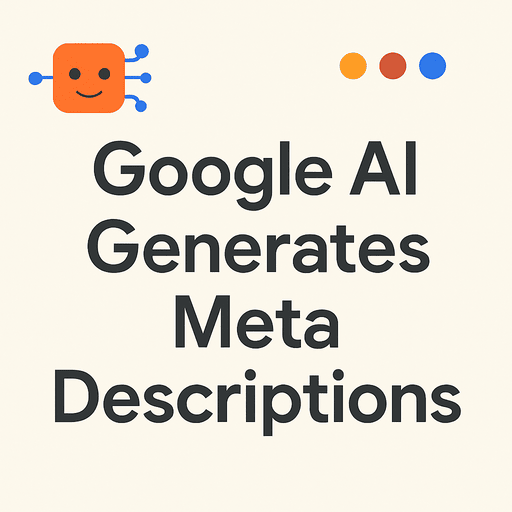Google AI Generates Meta Descriptions: The Implications for SEO Writers

Mb>Short Answer: Google’s AI now auto-generates meta descriptions, as seen in the screenshot where a Reddit thread has a machine-written snippet. While this may reduce the weight of manually writing meta descriptions for Google, SEO writers shouldn’t stop creating them. Bing, Yahoo, DuckDuckGo, and other engines still rely heavily on them.

The Screenshot: Google’s AI at Work
In the screenshot above, I searched “how to get oil stains out of clothes” and noticed something unusual at the bottom result. Instead of pulling the first lines from a Reddit thread, Google generated a synthetic meta description that summarizes the thread’s content in a more coherent, answer-like format.
This marks a shift in how Google handles metadata. Traditionally, search snippets came directly from a page’s meta description (if it matched the query) or from body text. Now, AI steps in to summarize and contextualize, even if no crafted description exists.
What This Means for SEO Writers
For SEO writers, the change sparks a big question: Do we still need to write meta descriptions?
-
For Google: Not always. AI will often override or rewrite your meta tags, especially for forums, blogs, and long-form content.
-
For Other Search Engines: Absolutely. Bing, Yahoo, and niche engines continue to lean on meta descriptions to populate search snippets.
-
For Click-Through Rate (CTR): Even if Google rewrites, your original meta description may still appear, and a compelling one increases chances of clicks when AI doesn’t generate something better.
In other words, while Google might not depend on your crafted meta description, search engines as a whole still do.
The Implications Going Forward
-
AI First, Metadata Second: Expect more AI-written summaries that compete with your handcrafted tags.
-
Entity and Fact Coverage: Your page’s structure, entities, and clarity will fuel what AI generates. That makes strong entity SEO and fact coverage more important than the tags themselves.
-
Cross-Engine Optimization: Since Bing is aggressively developing its own AI features but still uses traditional meta descriptions, writers should maintain them as part of a multi-engine SEO strategy.
-
Brand Voice Control: Even if Google rewrites, your description is still a place to control tone and messaging, better than leaving it entirely in AI’s hands.
Why You Should Still Write Meta Descriptions
Think of meta descriptions like insurance. Even if Google AI generates something else, your original tag is:
-
A backup in case AI doesn’t kick in
-
A tool for non-Google engines
-
A branded touchpoint when your exact words do appear
Dropping them entirely would be like ignoring alt text because Google Vision can read images anyway. It is short-sighted and risky.
Final Thoughts
Google AI-generated snippets are a milestone. They confirm that search is shifting toward AI summarization, reducing reliance on static metadata. But for SEO writers, this isn’t the death of meta descriptions. Instead, it’s a reminder to diversify efforts:
-
Write for AI with fact-rich, entity-driven content
-
Still write meta descriptions for Bing, Yahoo, DuckDuckGo, and CTR control
The skillset is evolving, not disappearing.
👉 Need help navigating AI-driven SEO changes? Contact me for advanced SEO content writing and AI optimization strategies.

0 Comments Add a Comment?